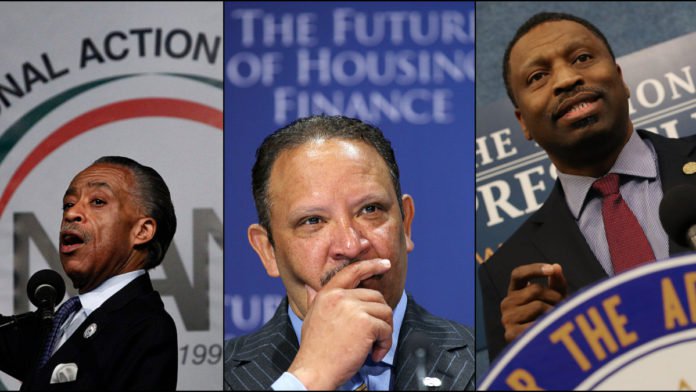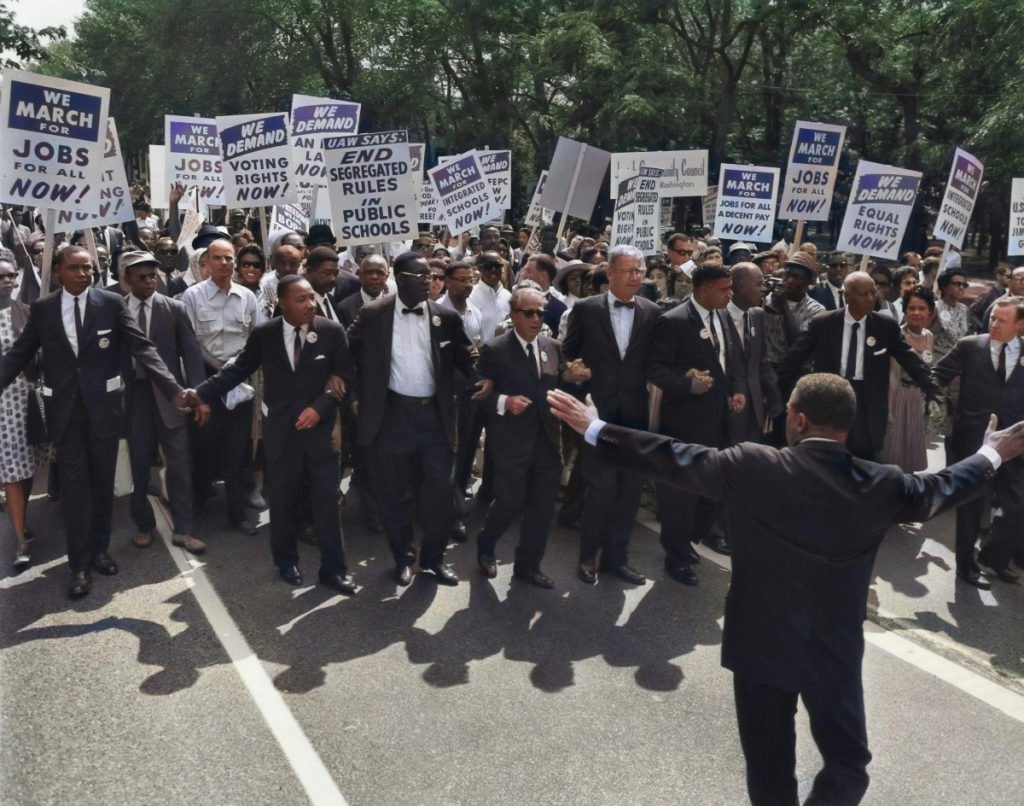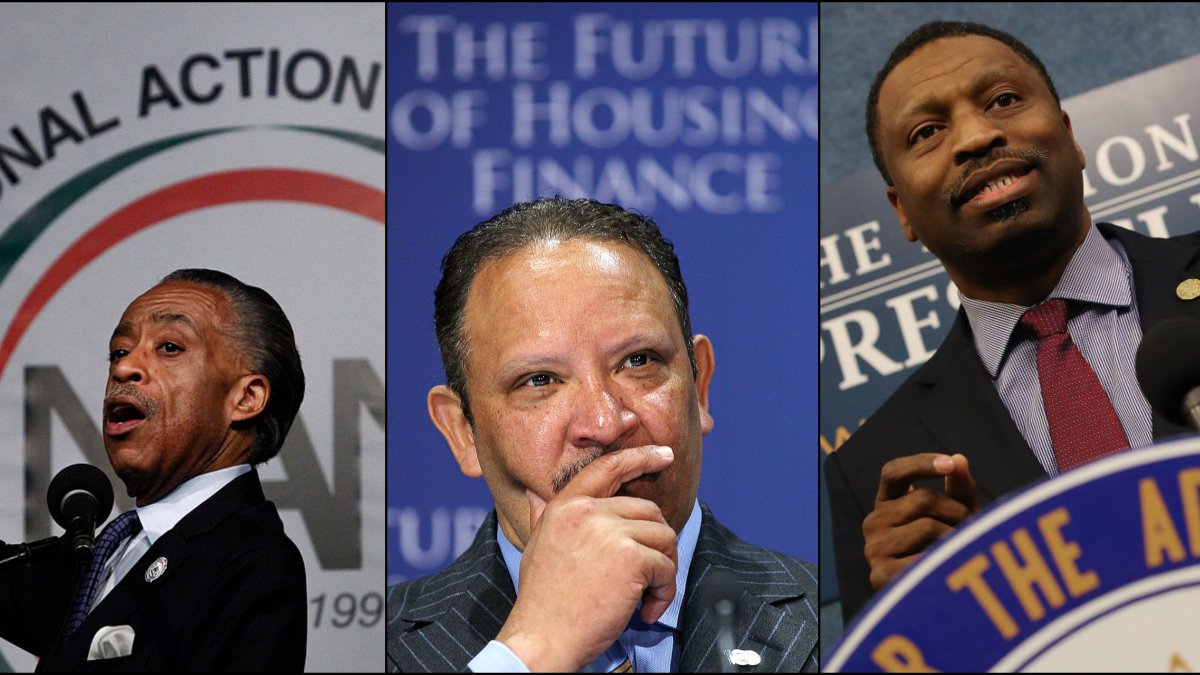[ad_1]

Memories of the civil rights movement evoke images of fearless community-based organizations that fought for the equality and justice for Black people. As they struggled in the streets, in the jail cells and the courts to cancel bad laws, overturn Jim Crow segregation, challenge white domestic terror and secure the right to vote, the people in those organizations put their lives on the line for the progress of the race.
Fast forward five or six decades, and some of the traditional civil rights organizations that got the job done back in the day are resting on their laurels and gathering dust, surviving on their aged brands and white corporate largesse, all the while holding chicken dinners in which they congratulate themselves for what they once accomplished half a century ago.

This scenario playing itself out would be quaint and nostalgic, but for the stakes involved and the extreme desperation of our circumstances. White supremacist domestic terrorists have a friend in the White House. America is waging an all-out war on civil rights, Black people, and all others who are not white, and the old-guard civil rights groups are seemingly missing in action.
Formerly, bottom-up change agents in their heyday, these organizations stand in the way of the new racial justice groups on the scene which includes the woke millennials who are fixing the problems an older generation created and have allowed to fester—because the old guard now collects checks and doesn’t want to rock the boat.
While Black folks are losing their civil rights, corporate America has waged its own battle and won, because (white) corporations are people now, too.
“America is waging an all-out war on civil rights, Black people, and all others who are not white, and the old-guard civil rights groups are seemingly missing in action.”
The civil rights establishment said little-to-nothing amid recent attempts by the NFL—whose owners have contributed millions of dollars to the Trump election campaign—to silence Colin Kaepernick and co-opt the movement against anti-Black police violence.
The Koch Brothers (Charles and David)—whose father helped Hitler build an oil refinery—have funded a conservative political movement that is corrupting American democracy through “dark money,” ruining the environment, giving white gunmen a license to kill Black people with “Stand Your Ground” laws, and disenfranchising voters of color through voter ID and other voter suppression methods. And yet, the UNCF and the Thurgood Marshall Scholarship Fund take Koch Industries money because, while a mind is a terrible thing to waste, apparently it doesn’t stand in the way of getting that bag from those who are undermining your community.
Then there’s the case when these same civil rights groups align themselves with companies like Comcast, Charter, and others, they receive seats on corporate boards, funding for their pet projects and events, and a broadcast platform through which to circulate their doctrine. This largesse poses a conflict of interest for these organizations, and may serve as a gag order against them.
These telecom giants, including Comcast, AT&T, Charter Communications and Verizon, created the Multicultural Media, Telecom & Internet Council (MMTC) as an “astroturf lobbying” scheme to pay off civil rights groups, and create the illusion there is community-based support for the industry’s policy stances.
During the Obama years, the NAACP and the National Urban League, also members of the MMTC, opposed the administration’s net neutrality policies, which were designed to provide for an open and free high-speed internet space with anti-discrimination regulations (like phone companies) to prohibit internet service providers (ISPs) from blocking certain content providers. These civil rights giants opposed measures to prevent telecom giants from owning the internet. Why? Because they took the money.
READ MORE: WATCH | Opinion: It’s time to boycott Comcast and anyone blocking Black economic power
The NAACP enjoys fundraising partnerships with AT&T, Verizon and Comcast, which gave $1.8 billion in cash payouts to various community groups in the recent years, while the Urban League received $1.2 million from Verizon in 2014 and placed telecom executives on its board. The League of United Latin American Citizens (LULAC), another MMTC member, received $1.5 million from AT&T in 2006 and $1 million from Verizon in 2008. Corporations will not dole out that kind of paper without expecting something in return.
Byron Allen, CEO of of Entertainment Studios and the National Assn. of African American Owned Media, filed a complaint against Comcast and Charter Communications, accusing the companies of blocking African American channels from their roster, and developing a memorandum of understanding with the NAACP, the National Urban League and the National Action Network as a “’sham’ to “whitewash Comcast’s discriminatory business practices.’”
The suit was filed under section 1981 of the Civil Rights Act of 1866, a Reconstruction-era law which prohibits racial discrimination in making and enforcing contracts. It has now reached the U.S. Supreme Court. Trump’s Department of Justice under Attorney General William Barr, which has proven itself to be no friend of Black lives, has intervened by filing a brief in the case in support of Comcast.
READ MORE: 400 Years Later: Why Aug 20,1619 is a date all Black Americans need to know
Turning the civil rights law meant to protect Black people and flipping it on its head, Trump’s DOJ argues that Entertainment Studios (or, if passed, any business owned by a person of color) has to prove under section 1981 that race was Comcast’s sole motivating factor in denying the company a contract—not simply a reason, but the only reason.
In a nation where discrimination is rampant, reinterpreting this 150-year old statute sets a dangerous precedent. This, from a White House that wants to “Make America Great Again” by disappearing Black people, preventing the victims of racism from getting justice, and letting corporations off the hook for their discriminatory practices.
We know where Trump stands on this case, as he seeks to dismantle civil rights and guard against “white genocide,” but where do the legendary civil rights organizations stand? They have been silent, and one must ask if their silence has been bought with chicken dinners.
David A. Love is a writer and media studies professor based in Philadelphia. Follow him on Twitter at @davidalove.
[ad_2]
Source link

